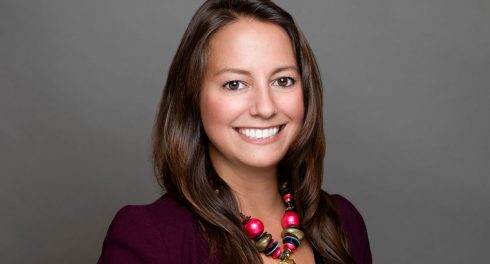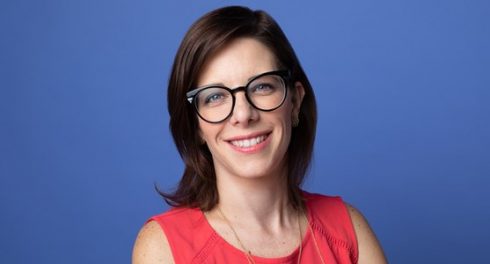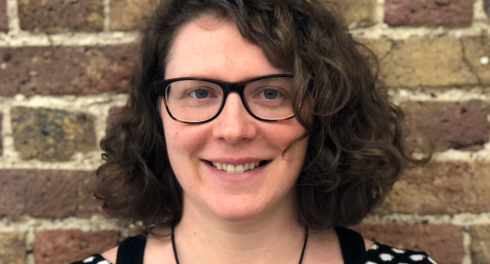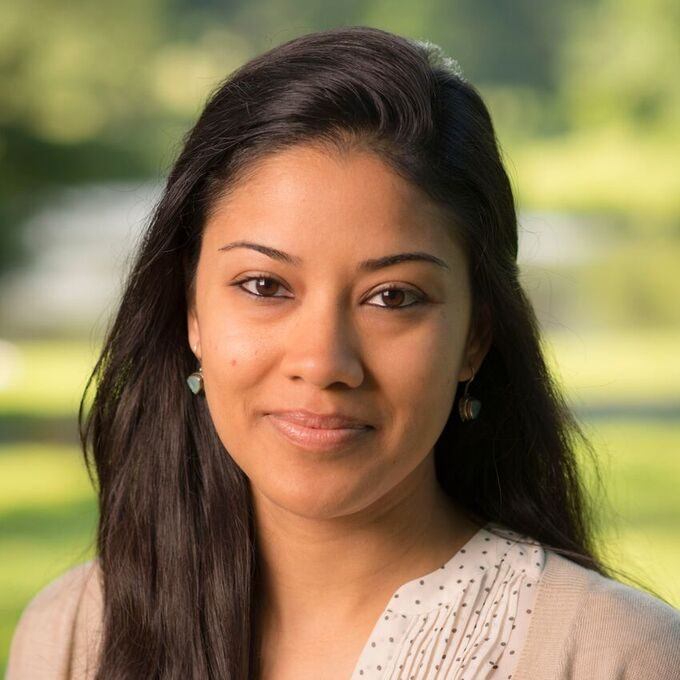
Munyema Hasan. Photo Source: Open Government Partnership
Munyema Hasan began her career in South Asia, where she worked with marginalized groups to understand where governments were failing to deliver, and why. Ten years on, she serves as the Deputy Director of Learning and Impact at the Open Government Partnership where she work with over fifty global staff to help government and civil society reformers design problem-driven, agile, and politically astute approaches to policy-making. Here, she shares insights into the importance of learning for an organization and what such learning process means in the long run.
Tell us about yourself, your interests, and why you work in the transparency, participation, and accountability field?
I started my career working on right to information laws. It took me to the remotest parts of south Asia where I saw how it was being used by marginalized communities to improve their livelihoods. But I also had to understand the political and bureaucratic hurdles that prevented the law from reaching its best potential. The early insight that power, politics, and incentives of people who work with the law make or break change processes – was a learning moment that defines how I approach my work to this day.
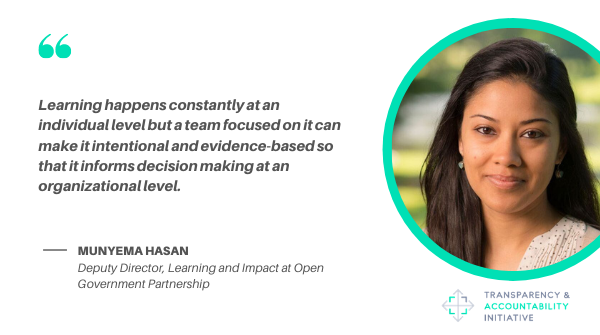 Why is having a learning and evaluation team critical to an organization, especially those working in the philanthropic sector?
Why is having a learning and evaluation team critical to an organization, especially those working in the philanthropic sector?
Learning happens constantly at an individual level but a team focused on it can make it intentional and evidence-based so that it informs decision making at an organizational level. It is important to any sector – not just the philanthropic sector. There is plenty of evidence that organizations that learn, course correct faster, have a competitive advantage. Taking the time to reflect on our actions, and listen to our stakeholders in a systematic and practical way is not a nice to have. It is essential if we are serious about change.
You recently wrote a blog about what learning looks like for a global-facing organization like the OGP. How does learning process differ for large organizations with global teams such as OGP vs. single-entity organizations? Are there areas of similarities and dissimilarities?
We regularly track 78+ countries on how they are doing on open government. It’s a lot of data to work with and there are many partners and actors in this ecosystem who contribute to opening government. Without a clear sense of where we – the OGP Support Unit – sit in the ecosystem, and what evidence we need to play our role more effectively; this data can quickly become noise. In a rapidly changing environment the kinds of evidence needed to adapt our support and make it contextually relevant can also change. This makes learning messy and complex but all the more critical. In my blog, I argue that real-time learning can rarely ever rely on one kind of evidence – a pragmatic mix of experience and evidence is needed to make rapid shifts in strategy. I think the main difference in global facing organizations versus smaller organizations is the challenge of accounting for the learning needs of multiple stakeholders, using many more sources of evidence and focusing on real time learning that is meaningful so that it informs decision making.
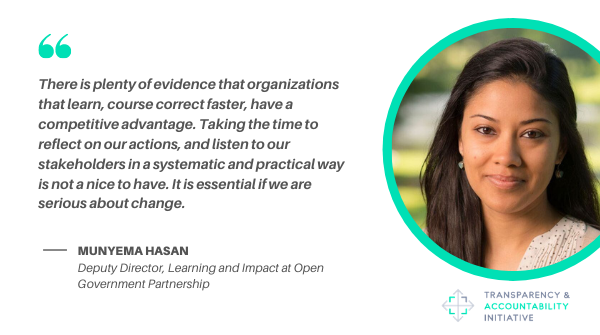 Critical to learning is putting evidence into action. What challenges exist in achieving this, and what are potential solutions to addressing this issue?
Critical to learning is putting evidence into action. What challenges exist in achieving this, and what are potential solutions to addressing this issue?
Leadership in any organization has to first see the value of learning. Once they begin to role model the importance of learning, they tend to secure the time, resources and staff to make learning actionable for the rest of the organization and this cultivates the unique learning culture for that organization. For many organizations getting to that first step can take a while. Following that we have to pay attention to whether learning is designed with the unique needs of learners, and whether it happens at a pace that is useful – not burdensome – to staff.
Starting out in this field –especially as a MEL person – what do you wish you had known at the beginning of your career, and what advice would you have given to your younger self?
I didn’t really start off as a MEL person. I think you have to experience direct stakeholder engagement whichever field you are in before you understand how to measure, evaluate and learn from that engagement. My advice to my younger self would be to have done more of the direct stakeholder support than I did!
Finally, what’s your favorite quote from a book or movie you have read/watched?
No favorites per say – I get inspired by things I read every day. The latest is from Arthur C Brooks who writes in the Atlantic magazine: “If our goal is to find the truth […] the humility to admit when we are wrong and to change our beliefs based on new facts can lead us to greater success”.
